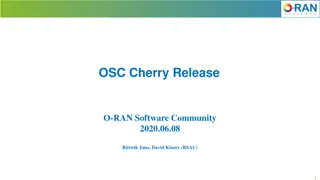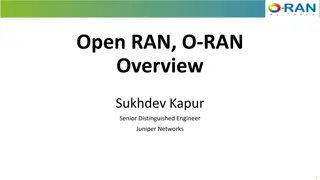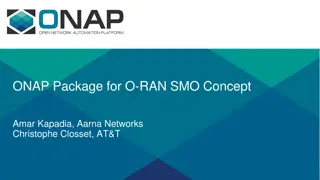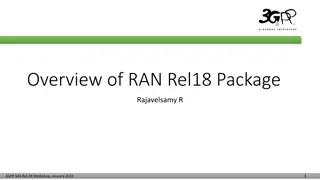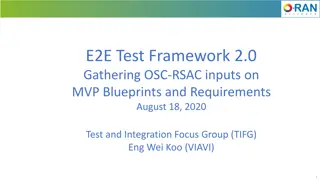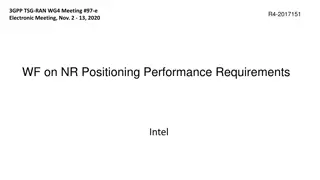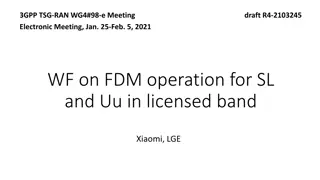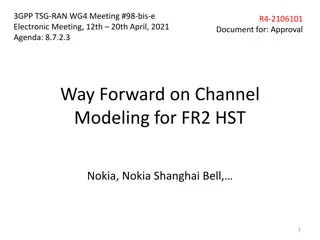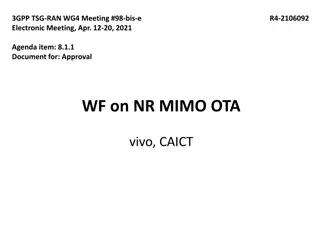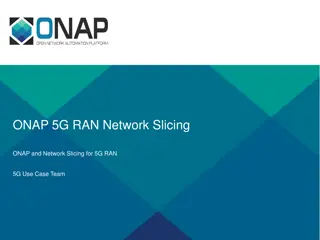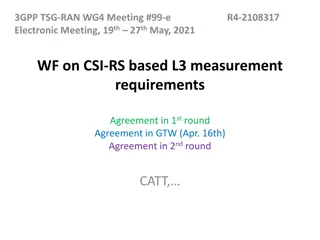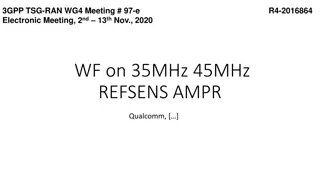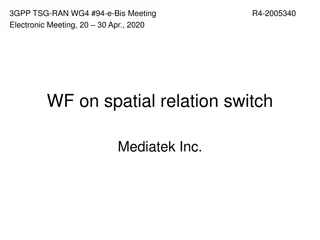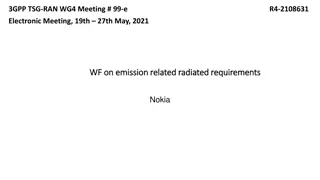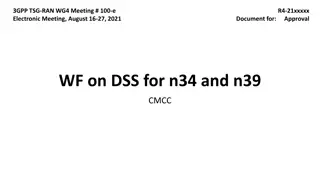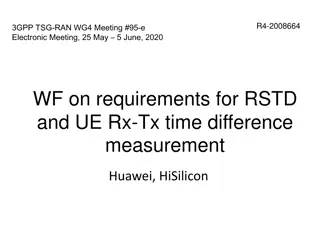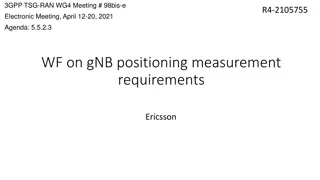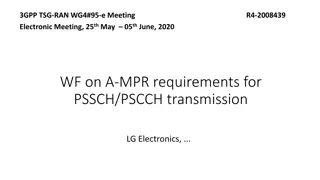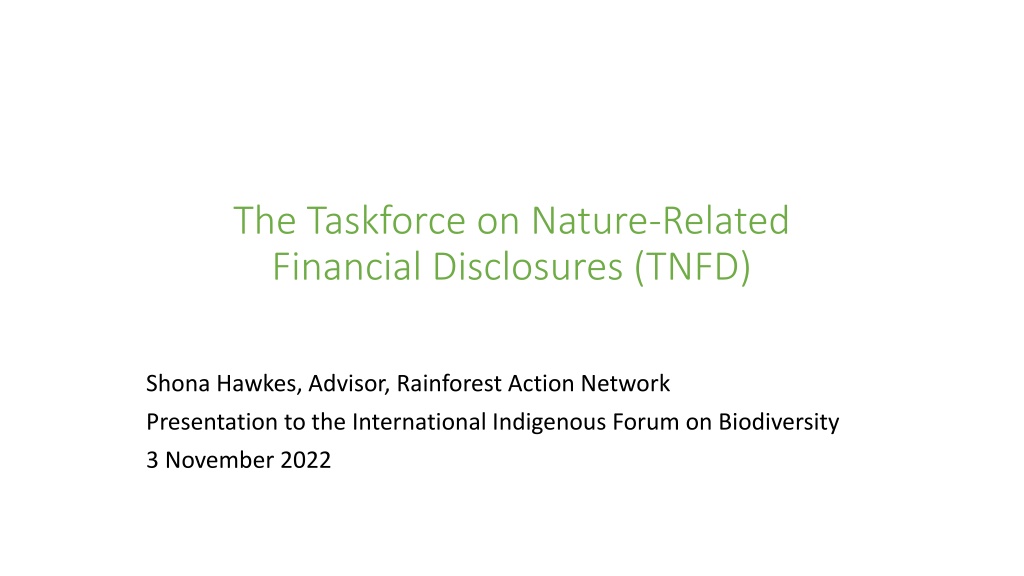
Understanding the Challenges of TNFD Framework
The Taskforce on Nature-Related Financial Disclosures (TNFD) aims to establish a framework for businesses to voluntarily report on nature-related risks. However, the lack of real-world examples and case studies makes the framework difficult to comprehend. TNFD focuses on assessing impacts without mandating disclosure, raising concerns about the effectiveness of such reporting. The proposal does not address legal consequences, profit relinquishment, or providing redress for environmental and human rights abuses. Embracing TNFD may not align with the demands of Indigenous Peoples and other stakeholders seeking comprehensive solutions.
Download Presentation

Please find below an Image/Link to download the presentation.
The content on the website is provided AS IS for your information and personal use only. It may not be sold, licensed, or shared on other websites without obtaining consent from the author. If you encounter any issues during the download, it is possible that the publisher has removed the file from their server.
You are allowed to download the files provided on this website for personal or commercial use, subject to the condition that they are used lawfully. All files are the property of their respective owners.
The content on the website is provided AS IS for your information and personal use only. It may not be sold, licensed, or shared on other websites without obtaining consent from the author.
E N D
Presentation Transcript
The Taskforce on Nature-Related Financial Disclosures (TNFD) Shona Hawkes, Advisor, Rainforest Action Network Presentation to the International Indigenous Forum on Biodiversity 3 November 2022
If youre confused about the TNFD you re not alone The taskforce is a group of 34 global corporations. The taskforce is writing a framework on how a business should voluntarily report on nature-related risks. It s writing recommendations on what a business should include in a short report a business should publish.
Why is the TNFD framework hard to understand? There are no examples of what a report would look like. There are no real-world case studies to show if a report would make any difference to how a company acts. TNFD draws inspiration from an earlier process on climate, TCFD. To date, TCFD has had little impact on saving forests or protecting Indigenous People s rights. TNFD is far removed from the solutions that Indigenous Peoples & others have been calling for.
What is NOT What is NOT covered under TNFD s proposal covered under TNFD s proposal Would a company or bank: Face legal consequences for causing environmental & human rights abuses? No. Have to give up the profits it made from harmful financing? No. Have to provide remedy and redress to people or ecosystems harmed? No. Have to disclose where it is operating, buying from or financing so that people can know if a company or bank is linked to problems in their area? No. Have to report complaints or allegations against it of serious environmental or human rights harms? Report where it was linked to illegal practices or fined for illegal practices? No. No.
As [financially] material Means that the below disclosures only need to cover things which will financially affect a business. If not, it doesn t need to be reported. Describe tools used to assess risks but not the results of those metrics. Report performance against targets to manage [financial] nature-related risks. Not risks to nature itself. TNFD s defines nature-related risks as the potential threats posed to an organisationlinked to its & other organisations' dependencies on nature and nature impacts . Not risks to nature itself.
A business has to know what it s impacts are. But it doesn t have to report them. This makes it easy for a company to lie about it This is the only bit that discusses reporting. TNFD says it is about a business assessing & disclosing its impacts and dependencies on nature . But a business doesn t have to disclose its impacts. Because a company doesn t have to disclose its impacts on nature or people it s stakeholders can tell a company concerns. But the don t have to be publicly acknowledged or reported. A company needs to assess its impacts but not show them. It only discloses how it is managing any related financial risks to the company.
What is NOT What is NOTcovered under TNFD s proposal covered under TNFD s proposal Would a company: Face legal consequences for its role in environmental & human rights abuses? Have to give up the profits it made from harmful financing? Have to provide remedy and redress to people or ecosystems harmed? Have to disclose where it is operating, buying from or financing so that people can know if it is linked to problems in their area? Have to report complaints or allegations against it of serious environmental or human rights harms? To report where it was linked to illegal practices or fined for illegal practices? No. No. No. No. No. No.
Why has the TNFD reached these conclusions? The taskforce is a group of 34 global corporations. It can take advice or suggestions from others but they ultimately make the decisions. The taskforce includes several corporations who have a very bad environmental and human rights record. The TNFD process has given little attention or research to what interventions change business behavior and which don t. We believe that most global corporations aren t willing to make it easier to find out if they are linked to environmental or human rights abuses. This is why TNFD has ignored its own experts advice to include impact reporting.
A better way to make hurting nature a business risk is to write and enforce laws that do just that - by holding business accountable for harms they cause or contribute to. We worry that the TNFD is distracting attention away from the real solutions that we need. Worse still, its poor framework could make it easier for a business to trick people into thinking it is helping the environment, when it isn t.
Should we ignore the TNFD? A business choice to report using the TNFD framework is voluntary for now. But corporations, UN agencies & others are calling for new laws based on TNFD s framework. Some countries are adopting TCFD on climate - into law. This takes time, energy & focus from the real solutions we need. We are extremely alarmed that anyone is calling for global corporations to be in charge of writing the template of future laws.
To remove TNFDs worst forms of greenwashing, it should Require a business to report: If they face complaints or allegations over environmental & human rights harms. Its impacts on biodiversity & human rights. It s supply chains & investment chain so that local people would know if a company is operating, buying from or financing activities in their area. In a way that aligns with international law on human rights & Indigenous People s rights for all reports. If it is lobbying against new laws to protect biodiversity & human rights.
Our recommendations We need to pushback against suggestion that global corporations should be writing our national or international laws. We need to be vigilant that discussions about financial risks to business do not distract from the call to end all business harms to nature & for business to be held legally accountable for their harms. We want a public record of what Indigenous Peoples, civil society organizations and others have said to TNFD. TNFD s processes are highly secretive. We also want pressure on the TNFD to call on it to remove its worst potential for greenwashing.
Thank you Shona Hawkes shona@ran.org Signal/Whats App/Telegram: +61 413 100 864 CSO statements can be found on the Resources part of our webpage: https://forestsandfinance.org/tnfd/#1-5 Our in-depth webpage on TNFD: www.forestsandfinance.org/TNFD/
TNFD consultation: Common problems A lack of public consultation Almost all TNFD s consultations are secret. There is no public information on when TNFD will do consultations (including with Indigenous Peoples) or how people can take part. Information isn t understandable or accurate TNFD s materials are unclear, confusing or misleading. There is no public record of what is said or communicated So we do not know what IPs view on TNFD are or what they recommend. We cannot see if TNFD is ignoring their recommendations or not.
CSO calls for TNFD to adopt human rights and make other improvements. For example, they are outlined in: May 2022: 28 NGOs and networks write an open letter to TNFD. May 2022: Rainforest Action Network makes 98-page technical submission to TNFD. August 2022: 13 NGOs issue a press release. September 2022: 4 organizations write to TNFD. October 2022: 48 NGOs and networks from 6 continents write to TNFD with profound concerns . These can be found at: https://forestsandfinance.org/tnfd/#1-5



